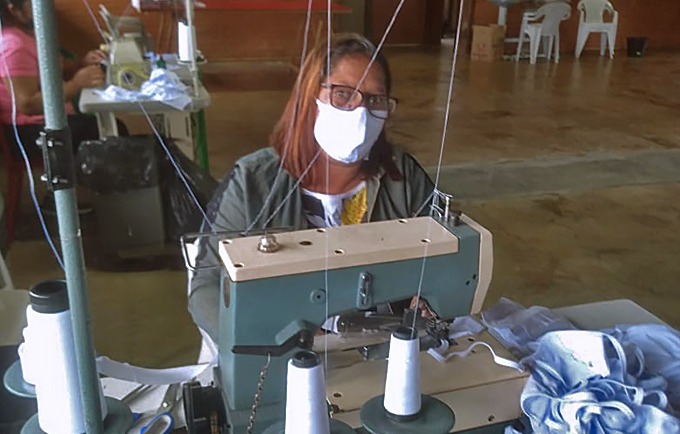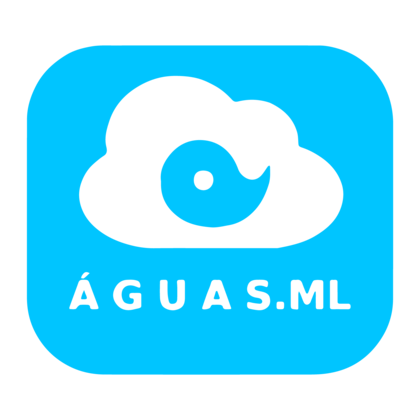
Gislene Pereira takes part in the project supported by UNFPA Brazil. Photo: Gislene Pereira
Gislene Pereira, 51, is a dressmaker who lives in the outskirts of Brasília and has a little business of custom shirts that was affected by the pandemic. Until the COVID-19, she used to make shirts for events, such as birthday parties, and uniforms for companies and churches. “All the orders I had were canceled. My whole production was shut down”, she says. Through a social project supported by UNFPA Brazil – Fábrica Social Jardim Botânico, an initiative of a neighborhood communitarian movement, Gislene returned to work, now sewing facial masks, something she has never made before.
The United Nations Population Fund in Brazil will buy 3,000 masks and 1,000 towels from the project. The items will set Dignity Kits expected to be delivered to homeless people in the Brazilian Federal District, through a partnership with local authorities. Gislene is one of the persons making the products, which has allowed her to have an income again. “If it wasn’t for this project, I wouldn’t be able to pay my bills and eat”, she says.
Ilton de Queiroz, executive director of the movement, explains that the project started making masks to the neighbors, and hiring Brazilian workers in a very harsh situation, like Gislene and Venezuelan refugees and migrants. The purchase from UNFPA Brazil was vital for the project. “So far, we have 12 families benefiting from it”, he says.
During a short training, Gisele had the opportunity to meet the Venezuelan refugees and migrants. “I have trouble understanding them, since I don’t speak Spanish, but we get along. We started talking about dressmaking and it worked”, she giggles.
Health and employment – According to the Reproductive Health Commodity Security Programme Officer of UNFPA Brazil, Nair Souza, the project is an opportunity to assure income and help the most vulnerable at the same time. Besides masks and towels, hygiene items like soap and hand sanitizer will be delivered.
Fonte
O post “Dressmaker who lost her income during the pandemic returns to work in a project supported by UNFPA Brazil” foi publicado em 17th July 2020 e pode ser visto originalmente diretamente na fonte ONU Brasil

